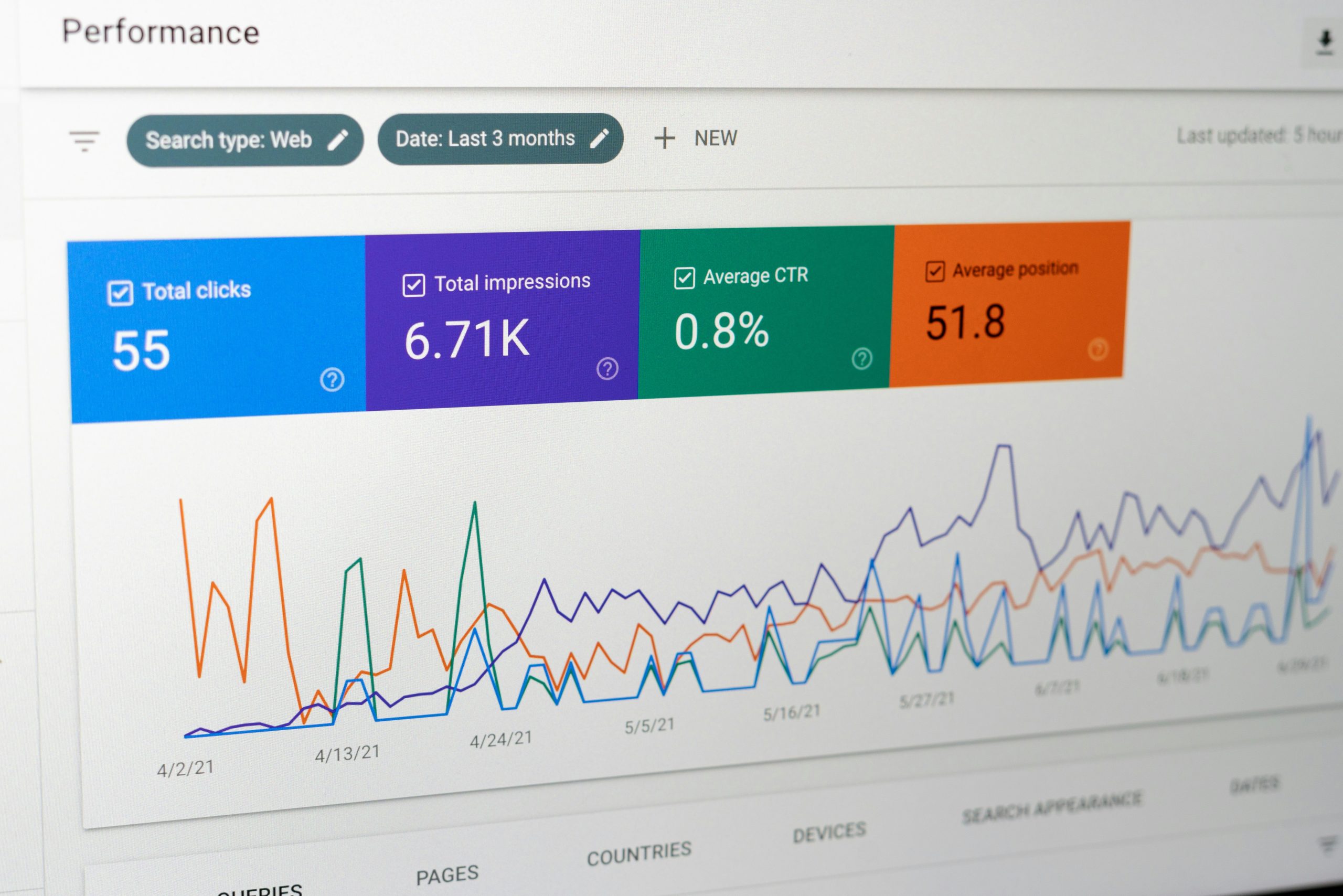Paid media can be one of the most effective levers for generating leads and driving revenue. But only if it is managed well.
The wrong agency can drain your budget, frustrate your team and damage your credibility with leadership. If you are beginning to wonder whether your agency is helping or holding you back, it may be time to take a closer look.
Here are seven red flags that suggest it is time to switch your paid media agency, along with insights on what they mean for your business and what you should do about them.
What We’ll Cover
- Poor Communication and Misalignment
- Stagnant Performance and a Lack of Innovation
- Data You Cannot Own or Verify
- Obsession with Vanity Metrics
- No Strategy, Just Speed
- They Do Not Understand Your Industry
- Reporting Is Infrequent or Confusing
- Why These Red Flags Matter
- What to Do Next
- Final Thoughts
1.Poor Communication and Misalignment
Strong communication is the foundation of any good agency relationship. If you constantly find yourself chasing updates, waiting days for a reply or receiving vague answers, that is a sign of trouble. Your agency should be proactive, transparent and aligned with your goals.
When communication fails, small issues can snowball. For example, a delayed response to a performance dip might mean wasted spend running for weeks before action is taken. Misalignment also makes it harder for you to explain results to directors or justify budget to the board.
What to expect instead: Regular check-ins, clear reporting and open conversations where your agency brings solutions, not excuses.

2. Stagnant Performance and a Lack of Innovation
Paid media is not a set-and-forget channel. Platforms change, competition shifts and audiences evolve. If your agency is recycling the same campaigns month after month without testing new ideas, you are probably leaving money on the table.
A plateau in results often points to complacency. Perhaps they are reluctant to test new channels like LinkedIn or they are avoiding creative formats such as video because it requires more effort. Whatever the reason, a lack of innovation means you are not getting value from your spend.
What to expect instead: An agency that constantly seeks incremental improvements. They should test new audiences, experiment with creative formats and bring fresh strategic ideas backed by data.
Get Weekly Paid Media Insights to Boost ROI
Join hundreds of marketing managers running paid ads and get weekly strategies to improve your campaigns.
"*" indicates required fields
3. Data You Cannot Own or Verify
Some agencies keep accounts and data under their own control, leaving clients in the dark. This is a serious red flag. Your ad accounts, creative assets and reporting dashboards belong to you, not your agency.
Without access, you cannot properly evaluate performance or transition smoothly if you choose to leave. Worse, you risk losing years of campaign history that could inform future strategy.
What to expect instead: Full transparency. You should have direct access to Google Ads, Meta Ads, LinkedIn Campaign Manager and any dashboards or analytics tools. Your agency should empower you with ownership, not restrict it.

4. Obsession with Vanity Metrics
If your agency celebrates clicks, impressions and CTRs without connecting them to leads, conversions or revenue, alarm bells should ring. These numbers may look impressive in a report, but they rarely tell you if your investment is paying off.
Marketing managers are accountable for ROI, not just engagement. If the agency cannot show how campaigns are contributing to sales pipeline or marketing influenced revenue, they are not doing their job.
What to expect instead: Clear reporting on metrics that matter, such as cost per acquisition, marketing qualified leads, sales accepted leads and return on ad spend. Vanity metrics can be useful in context, but they should never be the headline.

“The quality of leads rather than quantity is super important to us and our clients. That’s why we put such an emphasis on regular communication with the Sales team to scrutinise each lead and analyse which campaigns are achieving the highest value projects.”
George Allsop
Founder of Visibility
5. No Strategy, Just Speed
Quick wins might sound attractive, but paid media success comes from strategy, testing and optimisation. Agencies that promise overnight results often rely on shortcuts or generic tactics that burn budget fast but fail to deliver long-term value.
A good agency takes the time to understand your ICP, map out your funnel and align campaigns with both short-term targets and long-term goals. If all you are getting are last-minute fixes or one-size-fits-all tactics, you are being short-changed.
What to expect instead: A tailored strategy built on data and industry insight, with a clear roadmap for growth. The agency should show you how each action connects to your wider commercial objectives.
6. They Do Not Understand Your Industry
Every sector has unique challenges, sales cycles and buyer behaviours. If your agency treats your business like any other, you risk wasting spend on irrelevant audiences or messaging that does not resonate.
For instance, B2B SaaS often has a longer lead nurturing process than e-commerce, and professional services need messaging that builds trust over time. If your agency does not grasp these nuances, you will feel the gap in lead quality and conversion rates.
What to expect instead: An agency that speaks your language, understands your ICP and brings relevant examples from similar clients. They should be able to anticipate challenges and bring tested solutions that fit your world.
7. Reporting Is Infrequent or Confusing
Your reports should empower you to make decisions and communicate success upwards. If they are late, overly complex or packed with irrelevant metrics, they become a burden rather than a tool.
Confusing reports also undermine your credibility when presenting to leadership. You need straightforward insights that highlight what is working, what is not and what actions are being taken.
What to expect instead: Consistent, concise reporting that ties directly to your KPIs. An agency should give you confidence that they are in control and that their work is making a measurable difference.

Why These Red Flags Matter
Ignoring these signs can have a big impact. Staying with an underperforming agency not only wastes money, it also eats into your time, frustrates your team and damages trust with directors. Many companies stick with a poor agency for too long, hoping things will improve. By the time they make a change, they have lost both momentum and budget.
Recognising problems early allows you to act before they become critical. The right agency should make you feel supported, save you time and help you prove the value of marketing to the board. If you feel the opposite, it may be time to move on.

What to Do Next
If several of these red flags sound familiar, do not ignore them. Start by having an open conversation with your current agency and set clear expectations for improvement. If they cannot meet them, begin exploring alternatives.
When evaluating a new partner, look for:
-
Full asset ownership: You retain direct access to accounts, data and creative.
-
Business-focused metrics: Reports that speak the language of revenue, not vanity.
-
Proactive communication: Regular updates and strategic conversations.
-
Strategic expertise: Knowledge of your sector and your ICP.
-
Flexibility and innovation: A balance of tried-and-tested methods and new ideas.
Switching agencies can feel like a hassle, but the right partner makes a world of difference. They give you clarity, deliver results and free up your headspace so you can focus on strategy rather than firefighting.
Final Thoughts
Choosing to leave an agency is not easy. It often feels like admitting defeat or starting over. Yet the reality is that switching at the right time can unlock growth, protect your budget and restore confidence in your marketing.
If your current agency is showing these red flags, it is better to act now rather than waste another year waiting for things to improve. The right partner will not just manage campaigns, they will help you demonstrate value to your business and deliver results that speak for themselves.
